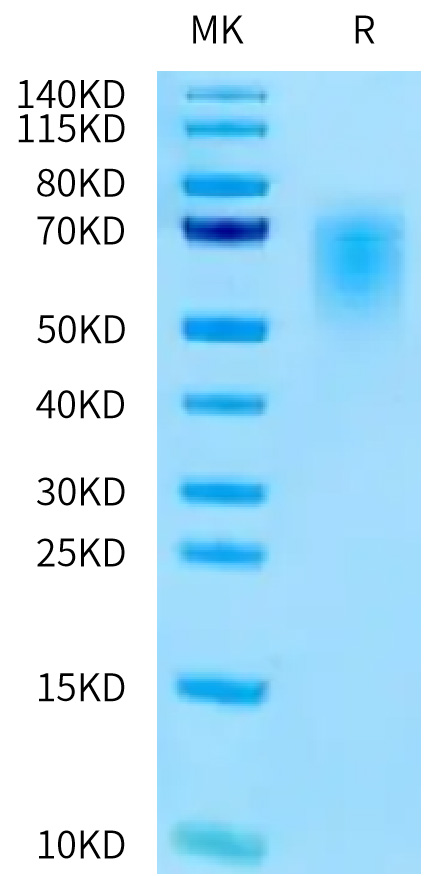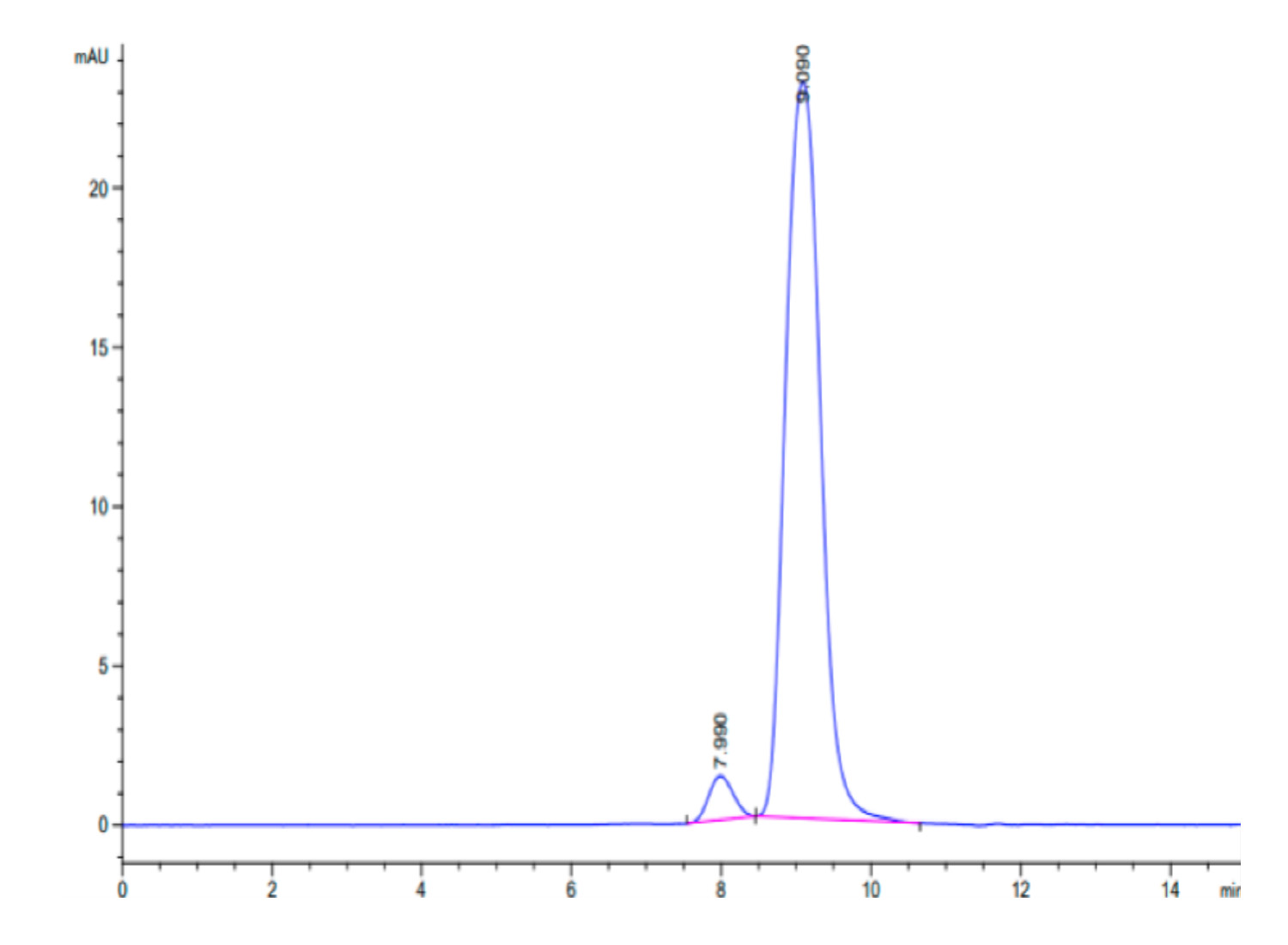Description
Recombinant Human CEACAM5/CEA/CD66e (145-322) Protein
The Recombinant Human CEACAM5/CEA/CD66e (145-322) Protein is a biologically active recombinant protein that plays a significant role in various cellular processes and signaling pathways in human biology. This protein is widely employed in immunological research, cell biology studies, protein-protein interaction analyses, and therapeutic development, providing researchers with a reliable tool for investigating CEACAM5/CEA/CD66e (145-322) function and its implications in health and disease.
This product (SKU: RPCB0618) is produced using advanced expression systems and features a C-His tag for convenient detection and purification. The protein exhibits a calculated molecular weight of 20.66 kDa with an observed molecular weight of 50-70 kDa under denaturing conditions, achieving ≥ 95 % as determined by SDS-PAGE;≥ 95 % as determined by HPLC., ensuring exceptional quality and consistency for research applications.
Key Features
| High Purity by Affinity Chromatography | |
| Mammalian & Bacterial Expression Systems | |
| High lot-to-lot consistency via strict QC |
| Product Name: | Recombinant Human CEACAM5/CEA/CD66e (145-322) Protein |
| SKU: | RPCB0618 |
| Size: | 100 μg |
| Reactivity: | Human |
| Synonyms: | CEACAM-5, CD66e, CEA, Carcinoembryonic, CEACD66e |
| Tag: | C-His |
| Calculated MW: | 20.66 kDa |
| Observed MW: | 50-70 kDa |
| Gene ID: | 1048 |
| Protein Description: | High quality, high purity and low endotoxin recombinant Recombinant Human CEACAM5/CEA/CD66e (145-322) Protein (RP00519LQ), tested reactivity in HEK293 cells and has been validated in SDS-PAGE.100% guaranteed. |
| Endotoxin: | < 1 EU/μg of the protein by LAL method. |
| Purity: | ≥ 95 % as determined by SDS-PAGE;≥ 95 % as determined by HPLC. |
| Formulation: | Supplied as 0.22 μm filtered solution in PBS (pH 7.4). |
| Storage: | Store at -70℃. This product is stable at ≤ -70℃ for up to 1 year from the date of receipt. For optimal storage, aliquot into smaller quantities after centrifugation and store at recommended temperature. Avoid repeated freeze-thaw cycles. |
Carcinoembryonic antigen-related cell adhesion molecule 5 (CEACAM5) was identified as a metastatic driver. CEACAM5 overproduction enriched for an epithelial gene expression pattern and facilitated tumor outgrowth at metastatic sites. Tissues from patients with metastatic breast cancer confirmed elevated levels of CEACAM5 in lung metastases relative to breast tumors, and an inverse correlation between CEACAM5 and the mesenchymal marker vimentin was demonstrated.








